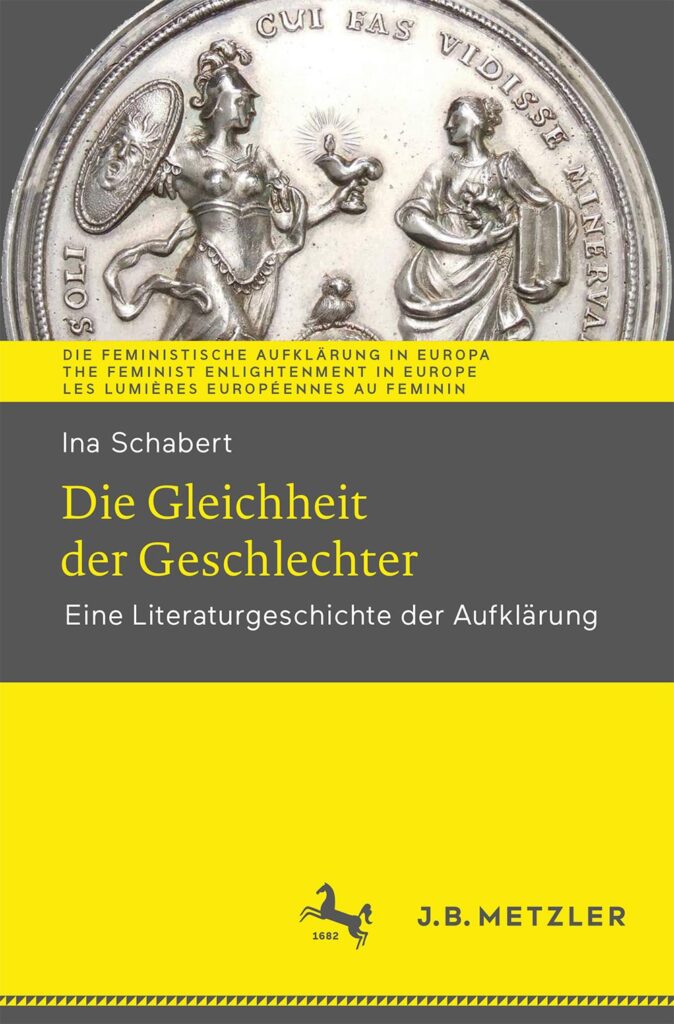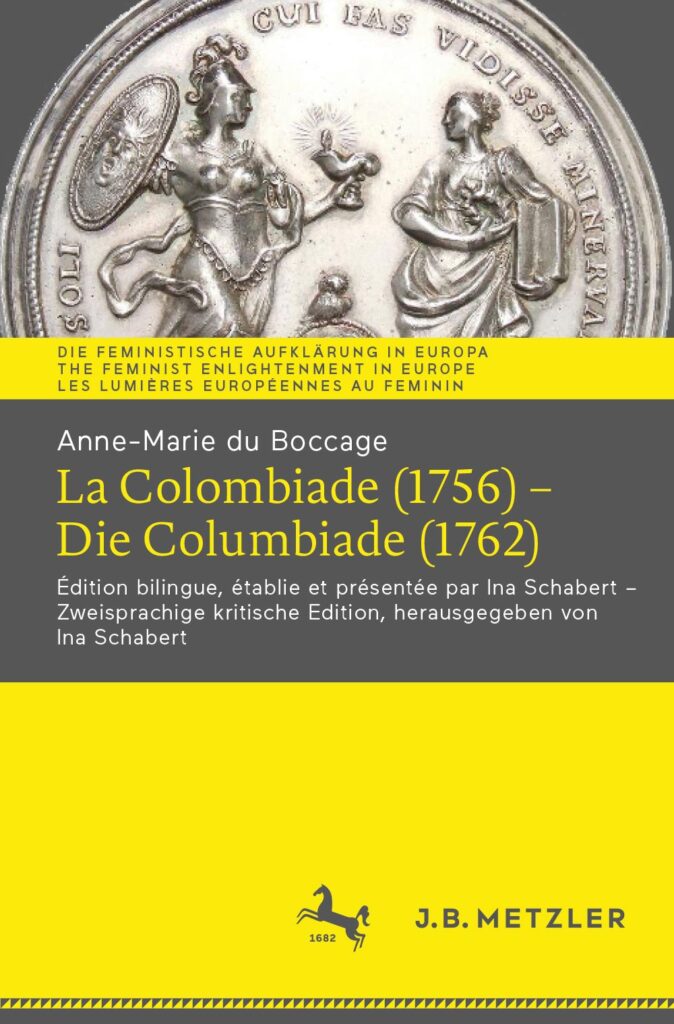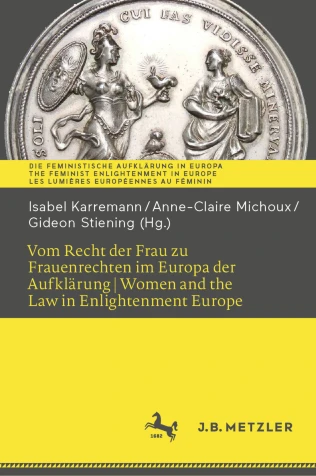Book Series: The Feminist Enlightenment across Europe
The series The Feminist Enlightenment across Europe features monographs, essay collections and critical editions of historical texts that engage with the extent to which and the ways in which different strands of the European Enlightenment between 1650 and 1800 discussed feminist issues and demands. How enlightened was the European Enlightenment regarding the legal, political, social, religious and cultural calls for equality between the sexes, a prerequisite for the ‘Age of Enlightenment’ to be transformed into an ‘enlightened age’? The series presents philological, historical and philosophical studies as well as multilingual critical editions that document the variety of feminist arguments and positions, alongside efforts by their opponents, from the late seventeenth century onwards.
Scientific committee:
Gillian Dow (Southampton, UK)
Corey Dyck (Ontario, CA)
Frank Grunert (Halle)
Marion Heinz (Siegen)
Rotraud von Kulessa (Augsburg)
Claudia Opitz (Basel)
Ina Schabert (München)
Siep Stuurman (Utrecht)
Volumes
Volume 1. Ina Schabert, Die Gleichheit der Geschlechter: Eine Literaturgeschichte der Aufklärung. Hg. von Isabel Karremann. Stuttgart: Metzler, 2021.
Die Gleichheit der Geschlechter: Eine Literaturgeschichte der Aufklärung brings together fourteen essays by Ina Schabert on German, English and French literature by and about women from the seventeenth and eighteenth centuries. The volume documents the substantial contributions that women authors of this period made not only to a gender-specific debate, but also to central questions, concerns and models of thought of the Enlightenment in Europe. In addition to historically thematic chapters on female education, academy projects and trans-European networks of scholarship, on the sexual emancipation of women or the disciplining of male desire through them, as well as on a European vision that grew out of a critical engagement with colonialism, the volume offers systematic-programmatic presentations of a literary historiography that does justice to the historical processes of the production and reception of literature as a dialogue between men and women, between men and women writers.
Volume 2. Anne-Marie du Boccage, La Colombiade (1756) – Die Columbiade (1762): Édition bilingue, établie et présentée par Ina Schabert – Zweisprachige, kritische Edition herausgegeben von Ina Schabert. Stuttgart: Metzler, 2021.
La Colombiade by Anne-Marie Du Boccage is a model work in which the adventure of the discovery of America is narrated and placed in an overarching historical context. The contemporary German translation testifies to the poem’s fame across Europe at the time. The evaluation of the heroic deeds depicted is unusually ambivalent for an epic. When Columbus is confronted with the consequences of his discovery, he anticipates the removal of his monument 500 years later when he exclaims in dismay: ‘shall I here by my endeavour produce so many vices, why did I not end my fate in the sea!’
Volume 3. Vom Recht der Frau zu den Frauenrechten im Europa der Aufklärung. Hg. von Isabel Karremann, Anne-Claire Michoux und Gideon Stiening. Stuttgart: Metzler, 2024.
The question of women’s rights in the eighteenth century is not necessarily linked to a feminist perspective on women’s rights – in the sense of an attribution of subjective rights – and thus to a juridical equality of the sexes. Rather, a wide variety of disciplines in the Age of Enlightenment used the law to legitimize, maintain or even reinforce the inequality, and indeed the oppression and enslavement of women in the family, society and the state. Nevertheless, this time period also saw demands for a juridical equality of the sexes – and thus for a feminist enlightenment in and through the law. This volume examines the validity of Enlightenment demands for a universal, egalitarian and free law. The question of whether the general juridical equality postulated by the legal-political Enlightenment also applied to the sexes occupied not only the debates about legal theory in philosophy and jurisprudence between the late seventeenth and early nineteenth centuries – i.e. during the Age of Enlightenment – but also the frequently divergent legal practice as well as literature and the arts.
Individual Publications
- Isabel Karremann, „Aufklärungsfeminismus heute. Respons zu Michael Hampes Die Dritte Aufklärung (2019)“. Aufklärung, Bd. 33 (forthcoming).
- Feministische Aufklärung, Hg. von Isabel Karremann und Gideon Stiening. Themenheft der Zeitschrift Aufklärung, Bd. 32 (2020).
Table of contents - Isabel Karremann und Gideon Stiening, „Feministische Aufklärung in Europe: Skizze eines Forschungsprogramms“. Aufklärung, Bd. 32 (2020), 5-15.
Introduction


